Schedule & Calendar
Winter 2025 – Starts January 13th
Old Testament Biblical Theology B
BibTh 203/223 (3 Credit Hours)
This course is designed to be an introduction to the Old Testament Scriptures, the first three–quarters of the Christian Bible. The emphasis will be placed upon
understanding the text in its historical, cultural and canonical contexts and its underlying theology. Matters such as setting, date, authorship, structure and content, as well as interpretive problems, will be considered, but the main emphasis will be on trying to discern the theological structure of the Old Testament in light of its meta–narrative. One of the major Jewish sequence of books will be followed, since this was probably the order of the oldest arrangement of the books, and formed the Bible of Jesus and the earliest church. This sequence begins with Genesis and ends with Chronicles. My intent for this course is to help you get an overview of a very different place and culture and time, and to help you use this context to understand the Old Testament Scriptures! So welcome to the journey, a journey like no other. It begins with God’s command to create light in Genesis 1 and it ends with a command to rebuild the temple in 2 Chronicles 36, and so to fill the world with the light of His Presence.
Church History B
CHist 203/223 (3 Credit Hours)
Systematic Theology III
SysTh 303/323 (3 Credit Hours)
Introduction to Apologetics
Apol 103/123 (3 Credit Hours)
Principles & Methods of Teaching
Teach 103/123 (3 Credit Hours)
In this course, we will examine the qualification and function of a teacher, the nature and needs of the student, the teaching-learning process, and the preparation and presentation of a lesson. Students are required to be involved in a teaching-learning ministry in a local church during this course.
Old Testament Survey
BibSv 203/223 (3 Credit Hours)
The Book of Hebrews
Hbrws 103/123 (3 Credit Hours)
This course is designed to familiarize the student with the New Testament letter to the Hebrews. Although we do not know who wrote Hebrews, it is full of glorious Christian themes that richly repay diligent study. Because Hebrews abounds with allusions to the Old Testament Scriptures it helps us understand how Jesus Christ is the fulfillment of the Law and the Prophets and how his salvation is something we should rejoice in. We will also explore what Hebrews has to say about how human beings can approach a holy God and live in his presence forever as members of his redeemed family.
New Testament Biblical Theology
Bib 303/323 (3 Credit Hours)
This course seeks to canvass the major events and motifs of the New Testament revelation from the four Gospels and the Acts of the Apostles. Topics include the Gospel infancy narratives, the ministry of John the Baptist, the kingdom of God according to the Synoptic Gospels, the Christology of the Gospels, the theology of Luke—Acts, and the theology of John. The first weeks of class will cover the scope, content and structure of New Testament theology. A combination of lectures, personal work, and readings is intended to guide you in understanding the NT content and theology. Class lectures focus on theological issues.
Homiletics B
Hom 203/223 (3 Credit Hours)
This course is designed to facilitate Biblically faithful and practically effective preparation and delivery of expository sermons through lecture, discussion, reading, and “practice” sermons. No course can make a preacher, but Homiletics is designed to hone the abilities of those who have been called and gifted by God to preach His Word.
Hebrew Grammar II
Heb 223 (3 Credit Hours)
A thorough knowledge of Biblical Hebrew is essential for understanding the Old Testament and proclaiming its message in the church today. This course is designed to enable students to acquire a basic reading knowledge of Biblical Hebrew prose and will lay a foundation for future study of Biblical Hebrew syntax, including intermediate to advanced prose and poetry.
Hebrew Syntax and Reading II
Heb 423 (3 Credit Hours)
A thorough knowledge of Biblical Hebrew is essential for interpreting the Old Testament in its social and cultural contexts and understanding its applicability for the church today. This course is designed to provide the tools necessary to competently translate any portion of the Hebrew Bible
Greek Grammar II
Grk 223 (3 Credit Hours)
A thorough knowledge of Biblical Greek is essential for understanding the New Testament and proclaiming its message in the church today. This course is designed to enable students to acquire a basic reading knowledge of Biblical Greek prose and will lay a foundation for future study of Biblical Greek syntax, including intermediate to advanced texts.
Greek Syntax and Reading II
Grk 423 (3 Credit Hours)
Exegesis from the Greek text is the proper foundation for the proclamation of the New Testament’s message. Students who have completed preliminary studies in the mechanics of Koine Greek will continue to sharpen and enlarge their exegetical skills in this course. Attention will be given to applying the rules of grammar and syntax while recognizing the nuance of idiom and historical context as students study the Epistle to the Galatians.


